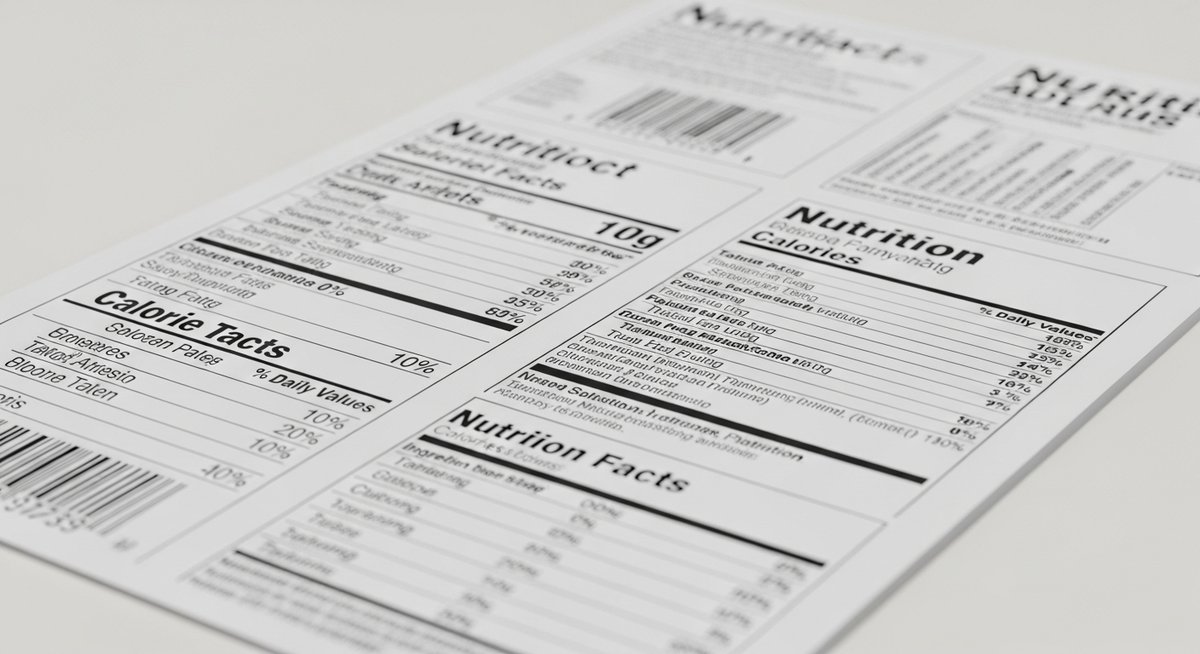Estimated Reading Time: 10 minutes
EEer feel like you’re constantly juggling flaming torches while riding a unicycle? Stress, my friends, often feels that way.
In 2025, with our lives seemingly on fast-forward, the search for sustainable ways to reduce stress is more crucial than ever.
It’s not about eradicating stress entirely; that’s unrealistic.
It’s about building a toolbox of strategies to manage it effectively, so it doesn’t run the show.
I remember a time when I was completely overwhelmed.
Deadlines were looming, my social life felt non-existent, and the constant pressure was wearing me down. It was a wake-up call.
I realized I needed a different approach. This isn’t just about surviving; it’s about thriving.
Let’s delve into some practical, sustainable ways to reduce stress that you can weave into your daily life.
Mindfulness and meditation aren’t about sitting cross-legged on a mountaintop (though, if that’s your vibe, go for it!).
They are sustainable ways to reduce stress by retraining your brain to be present.
It is scientifically proven that regular meditation can lower cortisol levels (the stress hormone) and increase feelings of calm.
One study published in the *Journal of the American Medical Association* found that mindfulness-based stress reduction (MBSR) programs can significantly reduce anxiety and improve overall well-being.
This is not just a passing trend; it’s a practice rooted in science and proven to be effective.
How do you begin? Start small. Even five minutes of guided meditation a day can make a difference.
There are countless apps and online resources to guide you. The key is consistency. Aim for a quiet space, close your eyes, and focus on your breath.
When your mind wanders (and it will!), gently redirect your attention back to your breath.
Over time, you’ll find it easier to stay present, even in stressful situations.
A healthy lifestyle is one of the most powerful and sustainable ways to reduce stress.
It’s the foundation upon which you build your resilience. We’re talking about the trifecta: nutrition, exercise, and sleep.
A poor diet can exacerbate stress, leading to inflammation and mood swings.
Regular physical activity, on the other hand, releases endorphins, which have mood-boosting effects.
Aim for at least 30 minutes of moderate-intensity exercise most days of the week.
Sleep, of course, is paramount. Aim for 7-9 hours of quality sleep per night.
Creating a relaxing bedtime routine, such as taking a warm bath or reading a book, can help signal your body that it’s time to rest.
Poor sleep can leave you feeling irritable and unable to cope with stress.
I have found that following a consistent sleep schedule (even on weekends) can remarkably improve sleep quality, which in turn significantly decreased my stress levels.
Think of it as a crucial investment in your well-being, like investing in sustainable beauty products for long-term health benefits.
Human beings are social creatures. Feeling isolated can significantly increase stress levels.
Nurturing strong social connections is one of the most important and sustainable ways to reduce stress.
Make time for the people you care about. Schedule regular catch-ups with friends and family.
Participate in activities that bring you joy and connect you with others.
A 2024 study by the University of California, San Francisco, showed that strong social connections were associated with a 50% reduced risk of early mortality.
It’s not just about quantity; it’s about quality. Cultivate meaningful relationships based on trust, empathy, and mutual support.
Be present when you’re with others. Listen actively, show genuine interest, and offer support when needed.
It is important to remember that asking for help is a sign of strength, not weakness.
Don’t be afraid to lean on your support network when you’re feeling overwhelmed.
Sometimes, just talking things through can make a world of difference.
In a world that seems to demand constant availability, setting healthy boundaries is one of the most overlooked but impactful sustainable ways to reduce stress.
Learning to say “no” is essential. Assess your commitments and eliminate those that drain your energy or don’t align with your priorities.
Don’t overcommit yourself; it’s far better to do a few things well than to spread yourself too thin.
Start by evaluating your current commitments – are you taking on too much? Are you consistently prioritizing others’needs over your own?
Setting boundaries can also extend to your digital life. Take breaks from social media and email.
Designate specific times for checking your messages and stick to them. Avoid constantly being “on.” Reclaim your time and energy.
It’s about protecting your mental and emotional space. Remember, it’s not selfish; it’s self-care.
It’s about building a life that feels manageable and fulfilling, not one that leaves you constantly exhausted and stressed.
Spending time in nature has a profound impact on our mental and emotional well-being.
It is among the most accessible sustainable ways to reduce stress.
Studies consistently show that exposure to nature reduces cortisol levels, lowers blood pressure, and boosts mood.
![Improve in Unlocking Calm: Sustainable Ways to Reduce Stress [2025] improve for unlocking calm: sustainable ways to reduce stress [2025]](https://www.trendynutritionhub.com/wp-content/uploads/2025/11/temp_improve_1763341726.webp)
Even a short walk in a park or a few minutes spent admiring a tree can make a difference.
The beauty of nature offers a respite from the stresses of daily life.
Consider incorporating nature into your routine. Go for walks in green spaces, hike in the woods, or simply sit outside and enjoy the sunshine.
Gardening can be a particularly therapeutic activity, connecting you with the earth and providing a sense of accomplishment.
If you don’t have easy access to nature, create a natural sanctuary within your home by adding plants, using natural light, and incorporating calming colors.
Even looking at pictures of nature can be beneficial.
What brings you joy? What activities make you feel alive, engaged, and fulfilled?
Making time for these activities is another of the most effective sustainable ways to reduce stress.
Whether it’s painting, playing music, reading, or spending time with loved ones, prioritizing joy can act as a powerful buffer against stress.
This is particularly important because when we are stressed, it’s easy to let the activities that give us joy slip by the wayside.
However, these are the very things that can help us recharge and maintain our sense of well-being.
Make a list of the things that bring you joy, and schedule them into your week. Treat these activities as non-negotiable appointments.
It’s not about being productive; it’s about nurturing your spirit. It is the perfect antidote to the demands and pressures of modern life.
It’s about creating a life that feels rich, meaningful, and enjoyable, regardless of the challenges you may be facing.
This journey to find sustainable ways to reduce stress is not always a smooth one. There will be setbacks and moments of overwhelm.
During these times, practice self-compassion. Treat yourself with the same kindness, understanding, and support that you would offer a friend.
Avoid self-criticism. Recognize that everyone makes mistakes and struggles at times.
Remind yourself that you are worthy of love, care, and compassion.
Self-compassion involves acknowledging your suffering, recognizing that it’s part of the human experience, and responding with kindness.
It is a vital tool for stress reduction.
Research shows that self-compassionate people tend to be more resilient and better able to cope with challenges.
So, the next time you’re feeling down, take a deep breath, and offer yourself a little extra kindness.
It’s a powerful step toward a more balanced and less stressful life.
Finding sustainable ways to reduce stress is an ongoing process, a marathon, not a sprint.
There’s no magic bullet, no one-size-fits-all solution. It’s about building a toolbox of strategies and learning what works best for you.
The key is to be proactive. Make stress management a priority, not an afterthought. It is a long-term investment.
Don’t wait until you’re overwhelmed to take action. Start today. I hope these tips will help you create a more balanced, peaceful, and joyful life.
It’s important to remember that what works for one person may not work for another.
Experiment with different techniques, and be patient with yourself.
Don’t be afraid to seek professional help if you’re struggling to manage your stress.
If you consistently feel overwhelmed, consider talking to a therapist or counselor. They can offer additional support and guidance.
The good news is, by investing in these sustainable practices, you’re not just reducing stress. You’re enhancing every aspect of your life.
Are you ready to create a calmer, more resilient you? Start incorporating these strategies into your life today.
Join our newsletter for weekly health tips!
{
“@context”: “https://schema.org”,
“@type”: “Article”,
“headline”: “Article Title”,
“description”: “Article description”,
“image”: “Featured image URL”,
“author”: {
“@type”: “Person”,
“name”: “Author Name”
},
“publisher”: {
“@type”: “Organization”,
“name”: “Site Name”,
“logo”: {
“@type”: “ImageObject”,
“url”: “Logo URL”
}
},
“datePublished”: “Publication Date”,
“dateModified”: “Last Modified Date”
}
Frequently Asked Questions
What is the most effective single step I can take to reduce stress immediately?
While there isn’t a single’magic bullet,’practicing deep, diaphragmatic breathing is one of the most effective immediate strategies. Take a slow, deep breath in through your nose, filling your belly with air, and exhale slowly through your mouth.
This simple technique activates your parasympathetic nervous system, triggering the’rest and digest’response, which counteracts the’fight or flight’response associated with stress. Repeating this several times can bring a noticeable reduction in stress levels within minutes.
Combining it with mindfulness increases effectiveness.
How can I realistically fit mindfulness and meditation into my busy schedule?
The beauty of mindfulness and meditation is its flexibility. You don’t need hours each day. Start small, even just five minutes a day can make a difference. Use your commute, before bed, or during lunch. There are many guided meditation apps available for short sessions.
Incorporate mindfulness into everyday activities, like eating a meal slowly and mindfully, or washing dishes. The key is to make it a consistent habit, and any small amount of practice is better than none.
Over time, your mind will adjust and you’ll find those five minutes can be greatly expanded and are often much more beneficial than expected.
How do I deal with stress if I can’t change the stressful situations in my life?
While you can’t always control external stressors, you *can* control your internal response. This is where the strategies mentioned in the article, like mindfulness, healthy habits, and building social connections, become invaluable. Focus on what *is* within your control: your thoughts, your reactions, your self-care.
Engage in activities that bring you joy and help you relax. Also, learn to reframe challenging situations. Try looking at problems from different perspectives. By changing your mindset and focusing on your internal resources, you can better manage stress even when external factors remain constant.
Is it true that exercise can actually make stress *worse*?
Yes, it’s a possibility if not managed correctly. Intense, prolonged exercise, or exercise without adequate recovery, can sometimes temporarily increase stress hormones. However, the benefits of regular, moderate exercise for stress reduction far outweigh the risks.
The key is to listen to your body and find a balance that works for you. Ensure you are getting adequate rest and nutrition to support your exercise routine. If exercise consistently worsens your stress, you might need to adjust the intensity, duration, or type of exercise, or consider professional guidance.
What if I feel overwhelmed by the idea of making lifestyle changes to reduce stress?
Don’t try to change everything at once. Start small and build momentum. Choose one or two strategies from the article that resonate with you and focus on incorporating them into your daily routine. Break down larger goals into smaller, more manageable steps.
For example, instead of aiming to exercise for 30 minutes every day, start by taking a 10-minute walk. Each small success will boost your confidence and make it easier to adopt additional strategies over time.
Remember to be patient with yourself, celebrate your progress, and be kind to yourself when you experience setbacks.
Are there any natural remedies that can help reduce stress?
Yes, several natural remedies have shown promise. These include adaptogenic herbs like ashwagandha, which may help the body adapt to stress. Other options include chamomile and lavender, which have calming properties and can be enjoyed as teas or used in aromatherapy.
It’s essential to consult with your doctor before using any new supplements or herbs, especially if you take medication or have underlying health conditions. Also, be wary of relying solely on remedies; they work best when combined with lifestyle changes.
document.addEventListener(‘DOMContentLoaded’, function() {
// 调整社交分享按钮位置
var sharingContainer = document.querySelector(‘.sharedaddy.sd-sharing-enabled’);
var recommendedReading = document.querySelector(‘h2:contains(“Recommended Reading”)’);
if(sharingContainer && recommendedReading) {
// 移动社交分享按钮到推荐阅读上方
var parent = recommendedReading.parentNode;
parent.insertBefore(sharingContainer, recommendedReading);
}
});







![relief for unlocking calm: sustainable ways to reduce stress [2025]](https://www.trendynutritionhub.com/wp-content/uploads/2025/11/temp_relief_1763341726.webp)

![moment for live more mindfully every day: a practical guide [2025]](https://www.trendynutritionhub.com/wp-content/uploads/2025/11/temp_moment_1763514992.webp)
![reduce for best anti-inflammatory foods for daily meals [your inflammation-fighting guide]](https://www.trendynutritionhub.com/wp-content/uploads/2025/11/temp_reduce_1763514597.webp)
![healthy eating habits for clean eating tips for busy people [2025]: fuel your life!](https://www.trendynutritionhub.com/wp-content/uploads/2025/11/temp_healthy_eating_habits_1763343757.webp)